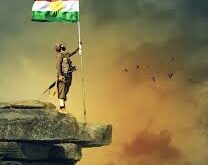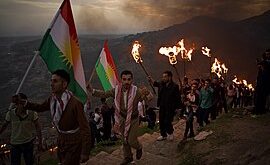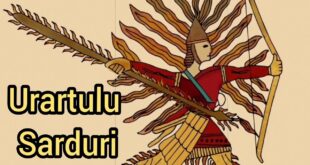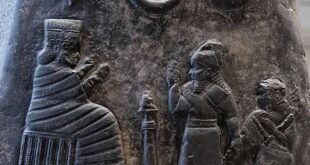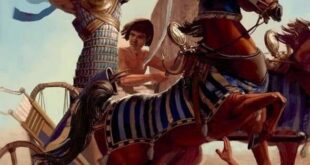Kurdish culture is a group of distinctive cultural traits practiced by Kurdish people. The Kurdish culture is a legacy from ancient peoples who shaped modern Kurds and their society. Kurds are an ethnic group mainly inhabiting West Asia. They live in the north of the Middle East along the Zagros Mountains and the Taurus Mountains in the region that the …
Read More »Daily Archives: شوبات 21, 2022
Newroz as celebrated by Kurds
Newroz or Nawroz (Kurdish: [نهورۆز, Newroz] [Nûroj, نوڕۆژ])is the Kurdish celebration of Nowruz; the arrival of spring and new year in Kurdish culture. In Zoroastrianism, fire is a symbol of light, goodness and purification. Angra Mainyu, the demonic anti-thesis of Ahura Mazda, was defied by Zoroastrians with a big fire every year, which symbolized their defiance of and hatred for evil …
Read More »Sarduri II ( Kings of Urartu )
Sarduri II (ruled: 764–735 BC) was a King of Urartu, succeeding his father Argishti I to the throne. The Urartian Kingdom was at its peak during his reign, campaigning successfully against several neighbouring powers, including Assyria. Sarduri II King of Urartu Reign 764–735 BC Predecessor Argishti I Successor Rusa I Issue Rusa I Father Argishti I Mother …
Read More »Kassites
It is thought that the Kassites originated as tribal groups in the Zagros Mountains to the north-east of Babylonia. Their leaders came to power in Babylon following the collapse of the ruling dynasty of the Old Babylonian Period in 1595 BC. The Kassites retained power for about four hundred years …
Read More »Hittite
Hittite, member of an ancient Indo-European people who appeared in Anatoliaat the beginning of the 2nd millennium BCE; by 1340 BCE they had become one of the dominant powers of the Middle East. Probably originating from the area beyond the Black Sea, the Hittites first occupied central Anatolia, making their …
Read More » History of Kurdistan
History of Kurdistan
